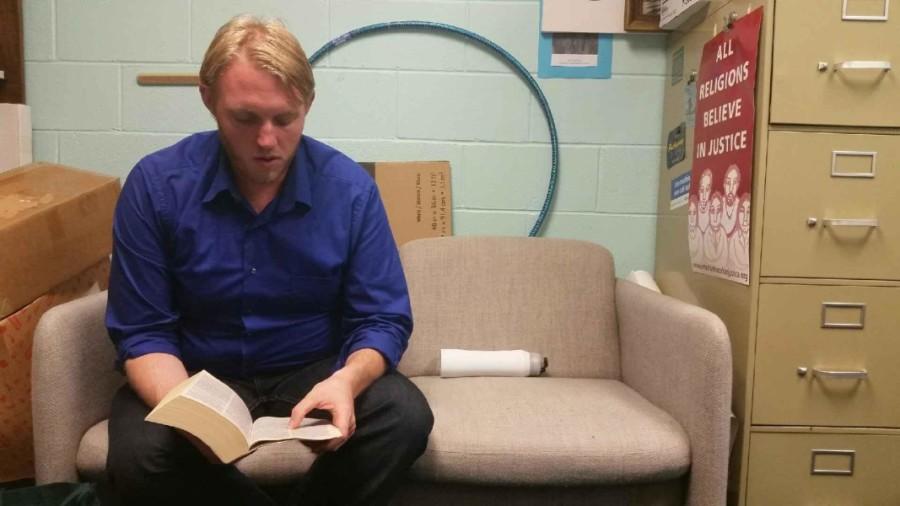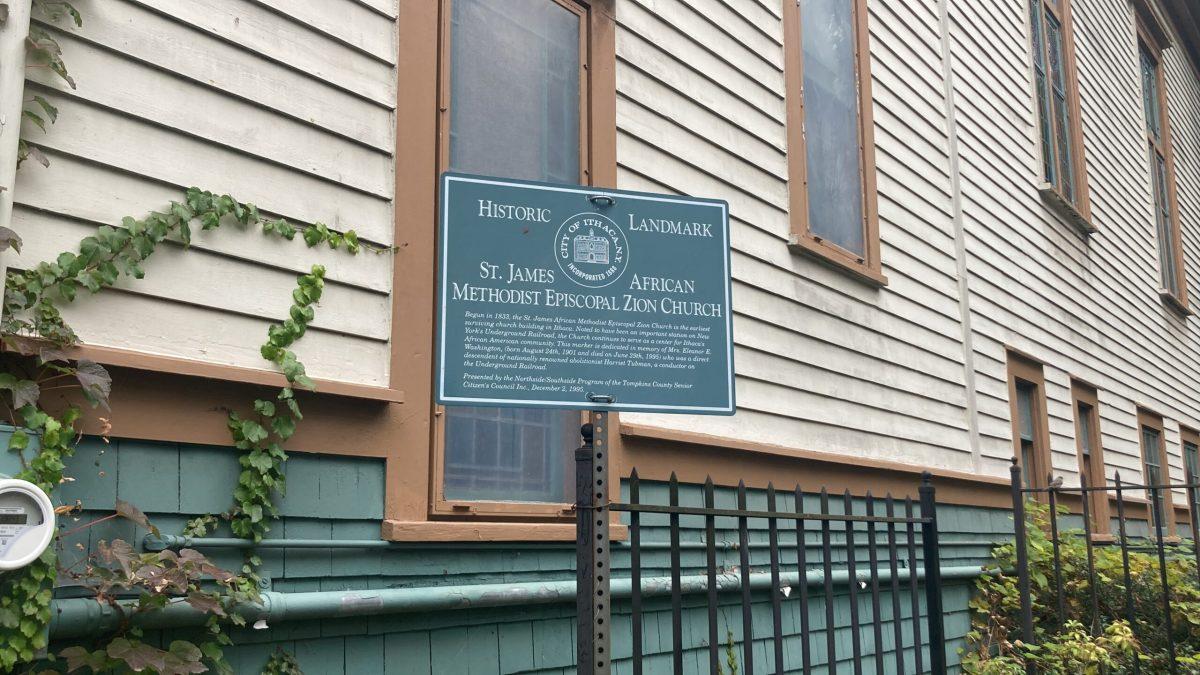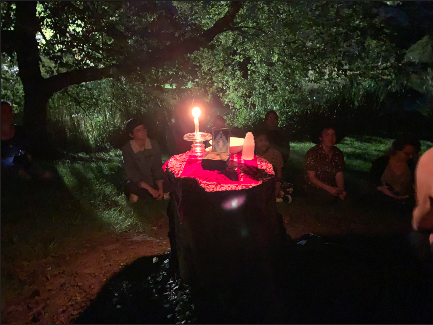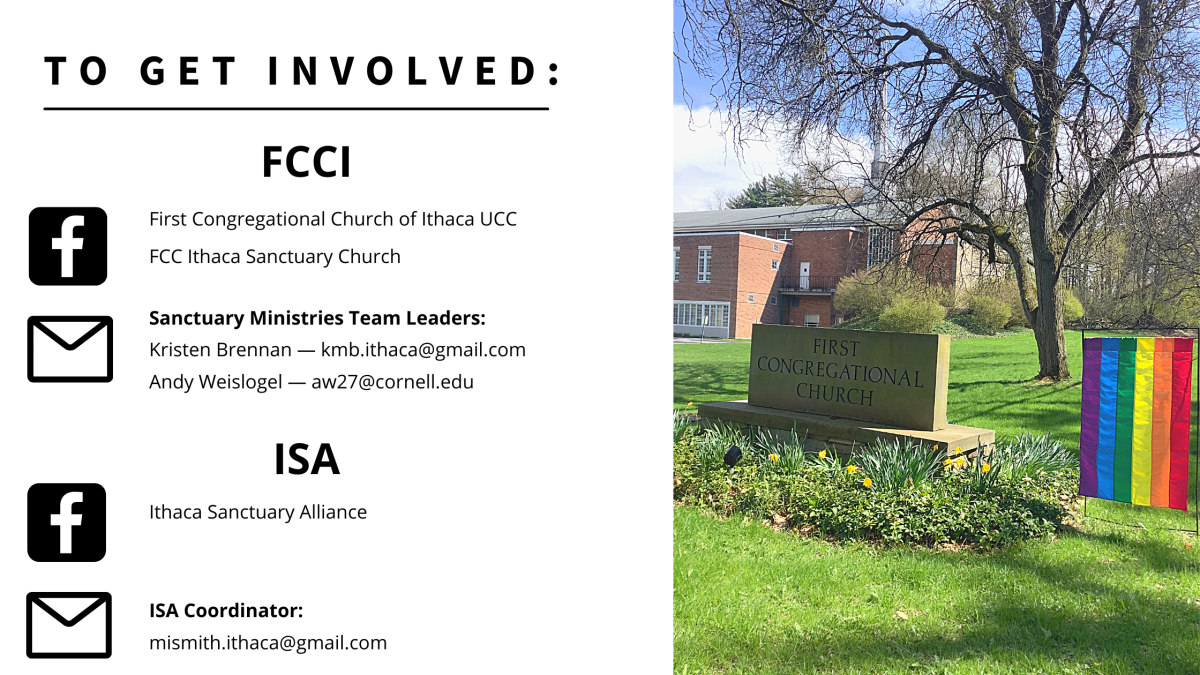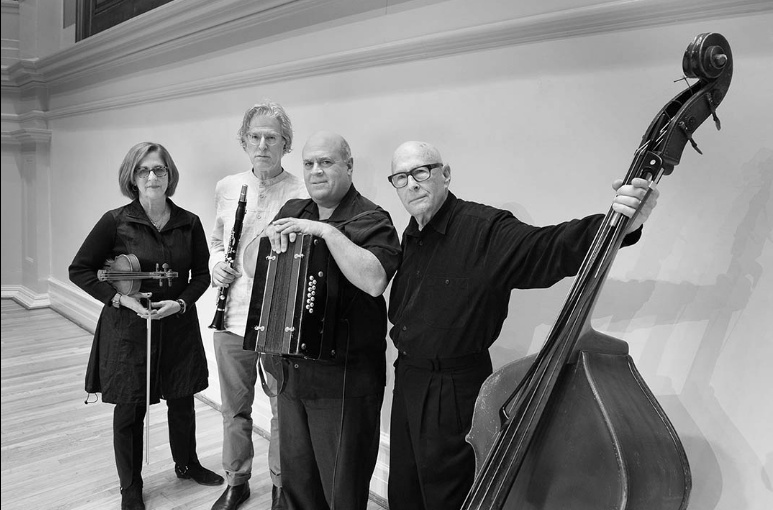As an environmental studies major at Ithaca College, Sarah Butler ’15 learned about a perfect job. In it, she could use her Quaker upbringing to generate interest in the community about environmental issues dear to her heart.
After graduating from the college, Butler began working for the Friends Committee on National Legislation, a Quaker lobbyist group based in Washington, D.C., in September 2015. As one of 18 Advocacy Corps organizers across 15 states, Butler works in the Ithaca community to urge representatives to take on climate issues.
“I want people to realize that they should care about political and environmental action because it really does align with and relate to their religion, no matter what faith they identify as,” Butler said.
On Sept. 17, 2015, H.Res. 424 was introduced in the U.S. House of Representatives, which expresses the commitment of the House of Representative to conservative environmental stewardship.
The Resolution
H.Res. 424 – Expressing the commitment of the House of Representatives to conservative environmental stewardship, or the “Gibson Resolution,” is a signal of House members’ affirmation of climate change.
The resolution was dubbed the “Gibson Resolution,” after the sponsor of the resolution, Rep. Christopher Gibson (NY-19).
The resolution focuses on representatives’ dedication to creating solutions that address the real effects of climate change and “efforts to balance human activities that have been found to have an impact.” Instead of focusing on whether climate change exists, the resolution aims to shift this debate to what House members can do to help.
Religion and the Environment In Ithaca
Butler worked with David Holmes, a campus minister for the Ithaca College and Cornell University Catholic Communities to gather signatures from the interfaith and Catholic communities on Ithaca College campus.
Butler joined the community during one of its weekly soup suppers, and then also during masses, to petition for signatures to ask Rep. Tom Reed to support the Resolution.
Holmes said he was more than happy to join Butler in her petition. He talked with churchgoers during the Catholic Community’s mass on Sundays. Holmes said people were excited and “wanted to help in any way they could.”
“It really all stems from a line from Genesis 2, where basically, God says, you as humans are in charge of this, you have to take care of this creation,” Holmes said.
Butler also reached out to a student club called the Ithaca College Interfaith Council, where she found the members welcoming to her petition and sharing some of her same beliefs regarding the environmental crisis.
“It is our call to action for people to speak out on these environmental issues because it is very important and pressing,” said Grace Neely, a member of Interfaith Council. “As a person of faith, our religion says that it is our responsibility to make sure that our Earth is in good condition.”
Both Holmes and Butler said protecting the environment is also about individuals and caring for one another.
Butler said people with no political voice are the ones who are harmed the most by bad environmental policies, as landfills and toxic waste dumps are often close to poor communities.
Support for the Resolution in Ithaca
“The Gibson Resolution, it’s a first step in reality, and it’s kind of sad that it took this long to take the first step, but we need to take it anyways,” Holmes said.
On September 29, 2015, Holmes and Butler gathered around 70 signatures from the Catholic Community and brought them to Rep. Tom Reed’s office in Ithaca. Butler said she collected 80 signatures total and sent about 20 support letters to Reed’s office. Currently there are 10 co-sponsors of the Resolution.
“Religion can be a hot topic and causes a lot of global conflict,” Butler said. “But really all religions say in some part of our text that we have an obligation to care for God’s creation, or whatever higher power you believe in, and make sure you are leaving something for future generations.”
Butler said she will continue to work on gathering support for the Resolution in the Ithaca community and is beginning to reach out to other faith groups about protecting the environment.
Reed’s office could not be reached for comment.

